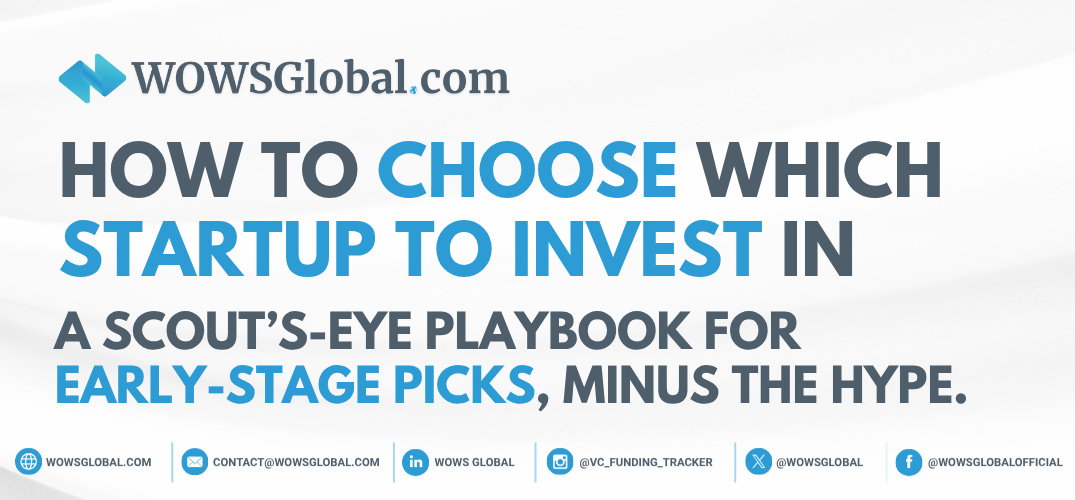What is Equity and how can Early Stage Startups Founders Leverage it?
Equity Equity Management Finance Investment Investor Startup Stock

When starting a new venture, founders of early-stage startups need all the leverage they can get. In that respect, equity and how it is distributed must play a major part in every founder’s strategy.
With that important premise in mind let’s take a look at some key equity factors. These will help to ensure you make the right decisions from the beginning of your startup journey right through to continued and successful growth.

What is Startup Equity?
Startup equity relates to ownership in a business. This is typically allocated between founders (and co-founders), investors, employees, advisors, and possibly strategic partnerships.
Because the majority of startups do not have sufficient data to accurately value their fledgling company, this leads VCs (Venture Capital) investors to put a tangible value on the startup’s business. This then becomes the startup’s valuation. In return, founders grant a stake in their business to relevant investors.Equity for early-stage startups is usually given in shares.
Startups will find two forms of equity:
- Common stock: This is the simplest equity form and is also known as ordinary shares. Founders own it and also issue it to employees through equity-based programs. Examples are ESOPs (Employee Stock Option Plans) and RSUs (Restricted Stock Units).
Voting rights come with common stock and each shareholder gets one voting right per common stock held.
If a company liquidates, common stockholders will only get their amount (share) after preferred stockholders and any other company debts have been cleared.
- Preferred stock: These stocks are given to investors to minimize risk caused due to their higher liquidation preference. This means shareholders with preferred stock have a preference in claims on company assets at the time of any liquidation.
They also get more special rights than common stock shareholders. It is usual for preferred stockholders to get the same voting rights as common stock . Having said that, they also have influence over any major company decisions that could affect their equity.

Equity as Currency
Equity is the currency of the startup world. It is used by founders to attract investors, strategic partners, and advisors. Offering equity is also seen as a highly effective ‘tool’ when it comes to luring the right talent required for your new venture. Key employees are exactly that. They are key to getting your business up, running, and helping it to continually grow.
Parting with equity is something that the majority of startup founders need to be prepared for. However, a crucial factor must be understood. Founders have to be on their guard against giving too much equity away at the early stages of the company’s life.
An inexperienced founder may feel that shares in their newly created company have little or no value. That could be the case but it does not mean those shares will always be worthless.Just remember, even if your shares do not currently have any substantial value, giving them away too freely is very likely to cause you issues when they do have value. A founder who finds themselves in this position will find the situation either very hard to reverse or irreversible!
Another highly important reason relates to the management of your share allocation. We will shortly explain how a secure, online cap table with a full suite of tools has to be the way to effectively manage this distribution.
Before that though, it needs to be understood that a crowded cap table will make your startup unattractive to investors. That must be avoided if you are to raise the sort of funds required to grow your business and take it to the next level.

Who Should be Given Equity?
Founders need to think long and hard about who should be given equity and how much. Here are 4 key groups that this relates to and who you can place on your cap table:
Co-Founders
During the very early stages of your startup’s life, co-founders should have almost all of the early equity. However, as the startup begins to raise capital and hires key employees their share will decrease.
It is very important that in exchange for having such large shares in the company founders should be 100% committed and be working full-time in the startup. This is where the founders should sign either a legal Founders’ Agreement or a Shareholders Agreement stating that their share allocation is contingent on them staying with the startup.
Advisors
People who act in an advisory capacity may or may not be essential to the type of startup you are building. Think hard about the value they can add to your efforts. If advisors prove necessary it is often the case that you do not have sufficient cash to pay them ‘out-of-pocket’. To get around this, you could instead offer them a small percentage of equity.
Any shares offered must be also contingent on their actual participation. Rest assured, there will be lots of people who state they have advice to offer in relation to your startup goals. This does not necessarily make them advisors!
Employees
Startup founders will want and need to attract top talent to increase the chances of their business becoming successful. This is where a trade-off needs to be addressed because funds are generally very tight. With salary restrictions in place, equity can be used to compensate these employees. This can be achieved by setting up an option pool.
It then means that their salary will almost inevitably be below what they could earn in a more established company. However, topping up their remuneration package through the additional offer of equity is an effective way to secure the services of these employees.
This incentive works by motivating key employees through the enticing prospect of a very big payday down the line. I.e. When the company goes public or is sold.
Investors
Investors may be the last to be mentioned here but without them, you will struggle. While initial investors want to be part of your exciting new startup they do not want to help with their time, rather, they prefer to do so by putting up capital.
As mentioned earlier, it is investors who set your startup’s valuation and this determines what your shares are worth. However, investors also need to look at the long-term. If they are allowed to invest at too low a valuation it stands that they will take too big a part of your equity. This in turn will make your startup unattractive to any future investors.

How to Manage Equity
Startup founders must manage equity effectively. Giving too much of your company away in the early stages has to be avoided. To ensure that you manage your equity in the correct way it is strongly recommended that you lean on the services of a company that is completely focused on helping startup founders grow their business in a measured way.
This will be achieved in a variety of ways but one that is of the utmost importance is implementing a secure, online cap table management solution.
WOWS Global is one such company. We are fully committed to assisting startup founders in their efforts to succeed. For example, our state-of-the-art cap table management system gives you a full suite of tools that are required to carefully and accurately manage your equity.
This system will allow such things as clearly stating founder details, centralizing all relevant data of employees, investors, and any strategic relationship agreements. It also allows founders to carry out regular reviews of their cap table as each record is added or amended.
Conclusion
It is clear that you will not become a successful entrepreneur overnight. Having said that, with the correct building blocks in place your startup venture has a much greater chance of long-term success.
Managing your equity early should be viewed as a priority. It is vital to the health and growth of your new venture. Treat equity in the same manner as you would real money. Startup founders who adopt a positive, forward-looking strategy will consider the importance of those people who will give future value to their new business. This is where equity can be used to great effect. Those with shares should be passionate and care about growing your business. After all, their incentive comes from the fact that they will share in your vision and the success it can bring to all involved.
In that respect, the highly experienced team at WOWS Global is here to help you on this exciting journey. We are ready to advise and guide you on the correct approach to equity division, protection, and allocation.
To understand more, please do not hesitate to contact us for an initial no-obligation discussion at: contact@wowsglobal.com
📞 Learn more about our Equity Management tools and discover how WOWS Global can support your fundraising journey. Ready to take the next step? Schedule a call with our experts now!
Related Posts
-

Fundraising 409A Valuation Cap Table Management Investor
WTF Is 409A and Why Should I Care?
Learn what a 409A valuation is, why it matters for employee stock options and how it impacts founders, investors, taxes and diligence, plus how WOWS Global can help. -

AI Finance Startup Finance CFO
Smart Finance, Winning Moves: How Fractional CFOs Use Tech and AI to Raise the Score
A quick, plain-English playbook on how fractional CFOs apply AI to sharpen forecasts, streamline reporting, and guide smarter decisions, so teams move faster and investors get clarity. Talk to WOWS Global to put it in motion. -

Capital Equity ROI Investment Management
Turn Momentum into Capital: How to Play the Hot Streak the Right Way
Your company is on a hot streak, now what? This article breaks down how to turn momentum into capital, avoid overspending, choose between equity and debt, and stay disciplined while investors are watching. Strike while the iron is hot, without losing control of the game. -

SEA & Middle East Investment AI Highlight
WOWS’ 2026 Predictions: 10 Bets on Where Southeast Asia’s Money Will Move Next
WOWS’ 2026 Predictions are a forward-looking map of where Southeast Asia’s money could move next: operator-led capital, Thailand’s mid-stage moment, SME credit as a major return engine, an AI survival test, and a wave of M&A. Investors, founders, and SMEs can use these 10 bets to plan for what may come. -

Investor Due Diligence Readiness Virtual Data Room Founder
Data Room Done Right: A Founder’s 30-Item Investor Readiness Checklist
Investors don’t fund mysteries. This Seed–Series A checklist shows exactly what to include, governance, product, metrics, financials, security, and round mechanics, so diligence speeds up, not stalls. Need help? WOWS Global can review and structure your data room. -

Startup & Venture Capital Early Startups Founder Investment
How to Choose Which Startup to Invest In
Choosing a startup isn’t a coin toss. This quick-read playbook covers market sizing, founder fit, unit economics, risk mapping, and terms, written in a toned-down sports recap style. Wrap up with “WOWS Insight,” where WOWS Global explains how it matches investors with companies that fit their thesis, stage, and traction.
